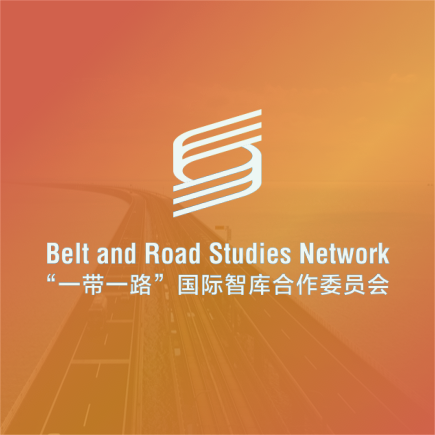
Martin Albrow, Senior Researcher, Institute for World Economy, UK
Speech at Belt and Road Forum (BRF) in Beijing on April 25, 2019
On the 23rd March this year President Xi came to Rome to witness the signing of agreements between Italy and China covering multiple sectors of the economy, including energy, agriculture and finance, as well as the ports of Trieste and Genoa. Of greater symbolic significance was the signing of a memorandum of intent that made Italy a member of the Belt and Road Initiative.
Italy was the prime destination for the ancient Silk Road trade and from there Chinese products and culture circulated through the West, with their origin often unrecognised. The prophet of the new age of science, Lord Francis Bacon wrote in 1620 that printing, gunpowder and magnetism had ‘changed the whole face and state of things throughout the world’, nothing had ‘exerted greater power and influence in human affairs’. Yet, their ‘origin, though recent is obscure and inglorious’.
A hundred years later and all that had changed, with praise being heaped on China, though not for inventions, but for the scale and grandeur of its imperial rule. Reactions to China in the West continue to oscillate wildly, but now almost simultaneously rather than with a lapse of a century from one extreme to the other.
The BBC reported concern about the Italian agreement among European allies and the United States, of critics pointing to ‘a bold bid for geo-political and strategic influence’ even as a US National Security Council spokesman had called Belt and Road a vanity project. It is kinder perhaps to speak of Western ambivalence towards Belt and Road rather than of incoherence, but the lack of understanding is palpable.
Among the many reasons for this Western failure to appreciate the positive nature of Belt and Road, I would single out one. It is seen as threatening and misplaced because it departs from many of the assumptions that underpin dominant views of global governance.
In scale and scope it has a global profile, rivalling any development programme of national or intergovernmental funding agencies. Around a third of the world’s countries are involved. Huge, yes, but making no claims to universality. It is non-prescriptive and offers only the shared benefits of win/win deals. It is based on government to government agreements and not on free market principles.
In other words this is a unique formation, emphasized by the branding ‘Belt and Road’, expressing the special history of China’s relations with the rest of the world. There is nothing else like it! It can tell us a lot, but only if we know about China.
Imagine if the Washington Consensus had been named ‘The Gold Rush’, evoking America’s Wild West, and we would have been bound to consider its unique and very real nature rather than seeing it as the outcome of the iron laws of the economy. The banality of naming agreements by a place name is probably why Beijing Consensus has never caught on.
Though it has ongoing global impact Belt and Road is not global governance as commonly understood, namely as a set of rules and institutions with the aim of establishing order between nations and thus realising universal human values. It does not deny global governance, but its relation to it is much more nuanced and indirect than simply being a subsidiary agent for it.
I think this is worth emphasizing in the context of the shared human future for which President Xi is such an eloquent advocate. When we share something in common we rely on each recognising the other’s interest in it and expect that each will contribute to its maintenance. A shared human future stipulates the dependency on each on all, and all working for each.
Belt and Road is a step in that direction, or rather a multiplicity of steps as each partner makes agreements with others to build the links in the chains of connections it projects into the future and trades and communicates along the routes that have already been built. The resulting interconnectedness facilitates the experience of diversity and the enjoyment of products across the boundaries of countries and regions.
All depends on mutual interest in and understanding of the technologies needed to build the infrastructure. Shared goals underpin Belt and Road and these are neutral in respect of the values of the partner countries. A road is a road whether it is used for a pilgrimage, a march or the way to work. Of course those varied uses may well require regulations that prevent them from interfering with each other, but the rules come after the use.
The progress of Belt and Road will be measured by the increases in traffic of all kinds along its routes and the value that is added to the economies of the countries involved. Those are outcomes everyone expects. But I want to point to the consequences beyond those results in the exemplary character of its fundamental assumptions about international co-operation for the shared human future.
There are today global challenges in the shape of global warming, nuclear insecurity and the control of the internet and artificial intelligence that require the same kind of understanding and co-operation that Belt and Road depends on and promotes. To meet those challenges we need deals beyond boundaries, the pooling of knowledge, sharing of technologies and a common understanding of the requirements for action.
These imply practical projects to which those of vastly different values and world outlooks can subscribe, and indeed need to support if they wish to pursue their own very different values in harmony with each other. The shared future will depend on such projects and Belt and Road is only one, but a very important one step along the way to realising it.
DISCLAIMER
The views expressed in this article are entirely those of the author(s) own, and not those of the Belt and Road Studies Network (BRSN).
今年1月,新冠疫情突然而至。为了防止疫情扩散,我国采取了史无前例的交通阻断及人流限制措施,这也为我国农业农村经济发展带来了巨大挑战。